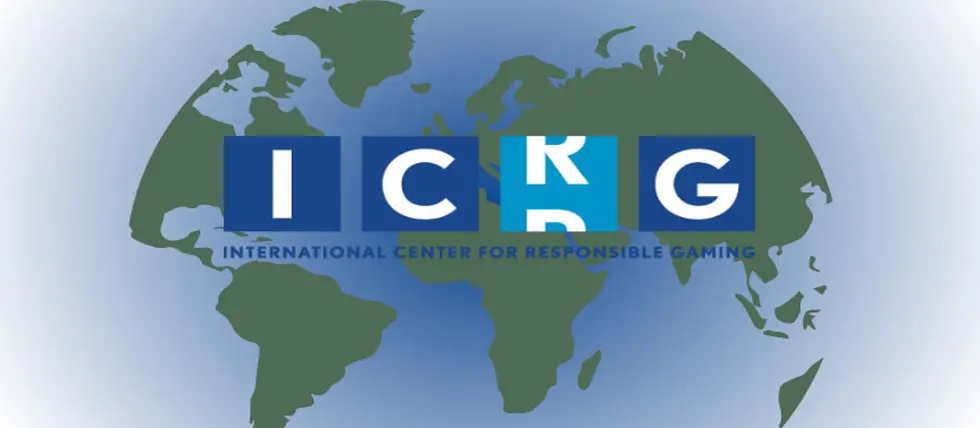International Center for Responsible Gaming Supporting Deep Research Into Gaming Habits
The International Center for Responsible Gaming (ICRG) is actively supporting a range of research projects in 2025 aimed at better understanding gambling behaviors and developing evidence-based tools to promote safer play. Through collaborations with academic institutions and support from industry partners, the ICRG is funding research that addresses gaps in responsible gambling strategies and explores emerging technologies and public health approaches.

According to a report by CDC Gaming, compiled from recent announcements, one of the largest grants awarded this year, totaling $435,087, was provided to Seth McCullock, PhD, of Cambridge Health Alliance. The project is focused on co-designing responsible gambling messages with input from gamblers and experts via a community advisory board.
Related: Study Finds Betting Limits and Positivity Promote Safe GamblingThe objective is to refine current messaging practices by making them more relevant and grounded in behavioral science. The research compares these tailored messages to existing ones and aims to generate actionable insights for improving responsible gambling efforts. This initiative is supported by a gift from Bally's Corporation.
Another research effort, titled "AI for RG," is led by Daniel McGrath, PhD, at the University of Calgary. McGrath received $187,874 to investigate the use of artificial intelligence in developing the next generation of responsible gambling tools. The study examines AI-driven classification models to identify at-risk gamblers and customize responsible gambling messaging.
Ethical considerations and user engagement are key aspects of this work, which aims to inform future practices for regulators, operators, and treatment professionals. This study is funded by MGM Resorts International.
Andrew Hyounsoon Kim, PhD, of Toronto Metropolitan University, is leading a study exploring the connections between gambling behavior, mental health, and addiction in emerging adults. Supported by a $186,578 grant, the project includes a participant base of 1,200 individuals aged 18 to 25.
The research investigates whether gambling precedes or follows other behavioral and mental health issues, paying particular attention to sex and gender differences, and activities like sports betting. Risk factors such as adverse childhood experiences and emotional regulation challenges are also being examined. This project also received funding from MGM Resorts International.
Paul Sacco, PhD, of the University of Maryland, is conducting a study on the potential financial impact of legalized sports betting, with an emphasis on bankruptcy rates. Awarded $46,000, the research compares bankruptcy data in states before and after the legalization of sports gambling, while also analyzing demographic and economic factors that may influence financial harm. The findings are expected to inform future consumer protection measures and responsible gambling regulations.
More Responsible Gambling
 Responsible Gambling
Responsible Gambling
Finland Publishes 2-4-2 Gambling Harm Framework Before 2027 Market Opening
Feb 18, 2026 Responsible Gambling
Responsible Gambling
FanDuel to End Credit Card Funding on March 2 as Part of Safer-Play Push
Feb 12, 2026Gaming Operators Support Research
A separate study led by Martyn Quigley, PhD, of Swansea University, investigates how environmental gambling cues affect behavior. The $44,936 project examines how visual and auditory stimuli, such as imagery in advertisements and the sounds of slot machines influence gambling activity.
Online experiments will assess behavioral responses and gambling severity, with the aim of informing policies on advertising and safer gaming practices. DraftKings is the funding partner for this research.
Scott Graupensperger from the University of Washington is leading two related studies focusing on young adults and sports betting. One examines the mental health impacts of problem gambling, revealing associations with depression, anxiety, stress, and social isolation.
The second explores the intersection of gambling and alcohol use, highlighting heightened risks for individuals who engage in both activities on the same day. Funded by Bally's with $172,273, these studies aim to provide data-driven strategies for industry-led responsible gambling initiatives and public health campaigns.
A study from Lia Nower, PhD, of Rutgers University, is also underway with a $391,497 grant supported by FanDuel and Hard Rock Entertainment. This research focuses on gambling behavior in emerging adults by analyzing a wide array of risk factors, including changes in gambling legislation, the influence of gaming mechanics in video games, and genetic or intergenerational predispositions.
The goal is to deliver evidence-based resources for use by treatment professionals, policymakers, and the general public.
Lastly, Michael Wohl has received $171,924 in funding from Global Payments to build on earlier findings related to gambling limits. His research examines the effectiveness of hard-lock options, where gamblers are prevented from continuing play once a limit is reached, compared to soft-lock options that allow continued gambling.
The objective is to determine how these interventions influence player behavior and spending over time, and to provide data for enhancing responsible gambling tools used by gaming operators.
RELATED TOPICS: Responsible Gambling
Most Read
Must Read
 Interviews
Interviews
Exclusive Interview: Levon Nikoghosyan Shares AffPapa Winning Formula for Successful iGaming Events
Dec 03, 2025 Interviews
Interviews






Review this New Post
Leave a Comment
User Comments
Comments for International Center for Responsible Gaming Supporting Deep Research Into Gaming Habits